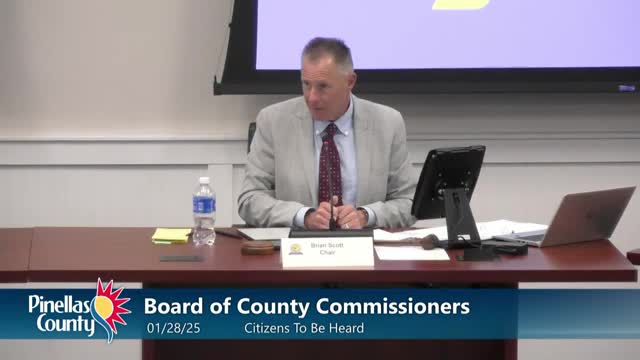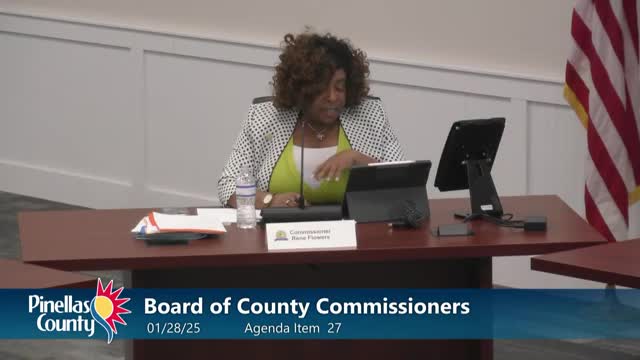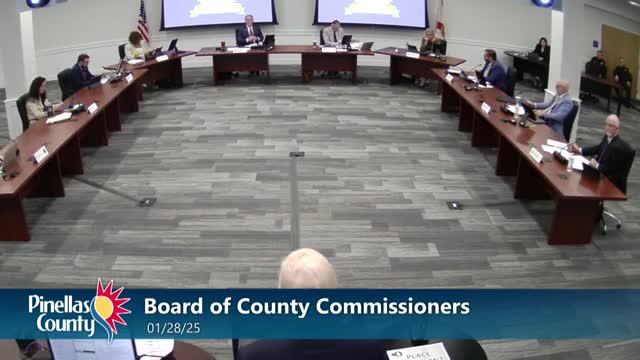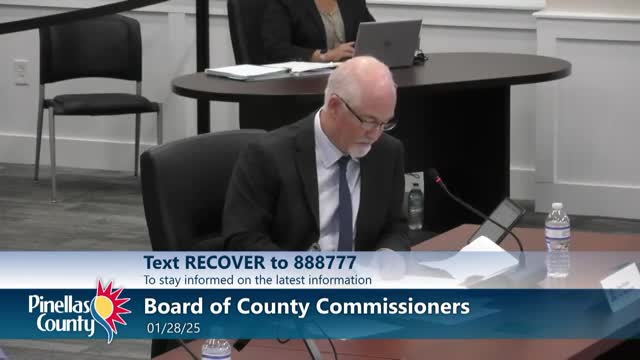Article not found
This article is no longer available. But don't worry—we've gathered other articles that discuss the same topic.

Board approves consultant contracts, housing and infrastructure grants and ordinances in Jan. 28 meeting

Public commenters and commissioners raise safety concerns about e‑bikes, motorbikes on the Pinellas Trail

County reports major backlog on manufactured‑home substantial‑damage reviews; permits rising for single‑family and condos

